In Ukraine, Bakers Are Making Desserts Shaped Like F-16s and Bomb-Sniffing Dogs
These symbolic sweets raise morale and funds for defense.
There are chocolates shaped like American F-16 fighter aircraft, anti-tank hedgehogs—the defensive obstacles that surround many Ukrainian cities—made of caramel, chocolate, almond praline and peanut butter, and croissants inspired by political leaders supporting Ukraine. These are all wartime dessert creations of the teams at Kyiv’s Honey Café and Zavertailo Bakery.
Ukraine’s bakers, pastry-makers, and chocolatiers have turned to culinary works of art to raise money for their military. Not only that, but they hope to create moments of levity and humor for customers living in stressful and painful times. They’re also focusing on Ukrainian ingredients and recipes, giving a cuisine that was often diminished during Soviet times a new modern spin.
It all started with a croissant, says Stanislav Zavertailo, 44, who co-owns Honey and Zavertailo with his wife Anna. Over a year ago, they developed the Boris Johnsonuke, in honor of then-British prime minister Boris Johnson and the British government’s support of Ukraine. The pastry has baked apples, vanilla custard, meringue approximating the politician’s hair, and is finished with a scoop of ice cream. “It was my idea and my passion to say thank you to England for the support,” Zavertailo says. “It was just an idea from the heart.”
Social media and news coverage of the croissant took off. “I think it’s the most famous croissant in Ukraine,” he says with a laugh. Outgoing British ambassador to Ukraine Dame Melinda Simmons was the latest political figure to be paid homage via a croissant creation.

For Zavertailo, inspiration has also come from incredibly painful moments. When Russian bombing and shelling destroyed buildings and killed hundreds in the town of Borodyanka in the Kyiv region last year, a ceramic rooster figurine survived atop a kitchen cabinet. The photo of the figurine went viral and became a symbol of Ukrainian resilience.
Honey teamed up with Ukrainian brand Gunia Project to create chocolates in the shape of the rooster. Zavertailo and his team of over 60 pastry professionals spent several months experimenting with flavors to “show the whole world and our people modern styles and traditions from Ukraine with the art of sweets,” he says. “We use mostly Ukrainian ingredients and mostly famous tastes of Ukraine.”
Those flavors include sunflower seed, viburnum berries, known in Ukrainian as kalyna, a traditional flavor paired with bergamot, prunes and walnuts, medivnyk—a honey cake that Zavertailo argues is a Ukrainian dessert, not a Russian one—and a juniper and currant flavor inspired by products from Ukraine’s Carpathian mountains. A portion of proceeds from every box goes to the Serhiy Prytula Foundation, which supports Ukraine’s armed forces.
The full-scale war has directly affected Zavertailo’s staff of 350 employees. Nine people from his company are currently serving in the armed forces. Two have been injured and one was killed, he says. “The main thing that changed in our business and in my life after this full-scale invasion, was we started to see more inside of us, of being Ukrainians, of our traditions,” Zavertailo says. “We try to do anything, with strange ideas, crazy ideas [to help].”
For many years, Ukrainian cuisine suffered from a lack of attention, with traditional flavors going ignored, says Ukrainian food anthropologist and author Marianna Dushar. During the Soviet period, Ukrainian cuisine was put into a “stereotypical framework, that it was the food of peasants, not of very smart or very sophisticated people,” she says.
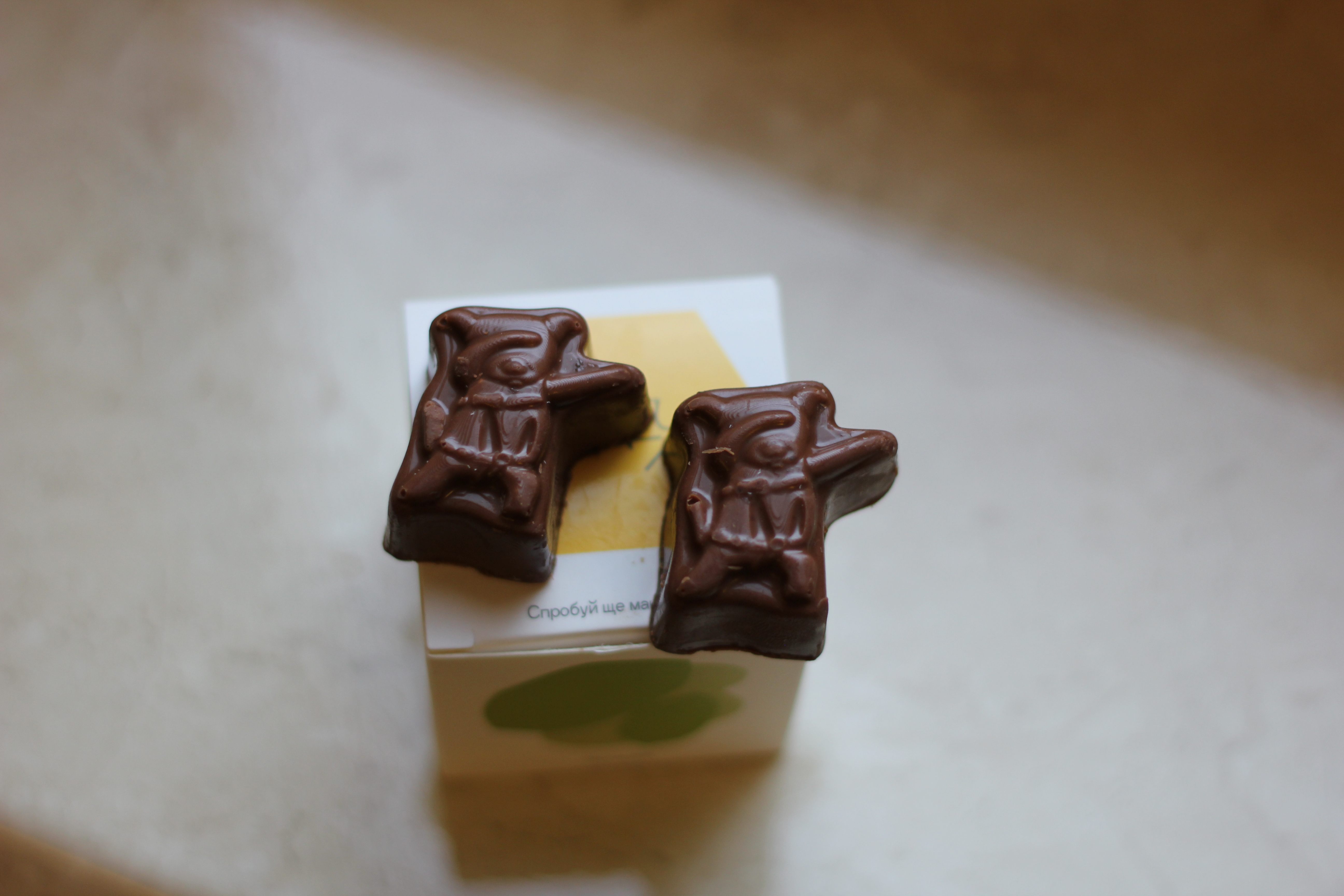
But now, Ukrainian cuisine is seeing “a moment of peak interest,” Dushar says. Her own Seeds and Roots project, where she discusses and collects historic Ukrainian cookbooks, has seen a big uptick in readers. “It is very important that Ukrainian cuisine for many people during this war is creating a sense of home, it is becoming a comfort food,” she says. “It seems to me, this is the moment when we can understand for ourselves what Ukrainian cuisine is and what it can be in the future.”
It is rare to see culinary events taking place in Kyiv these days that aren’t in some way helping the army, says Anastasiia Ivantsova, a food blogger based in Ukraine’s capital. “Honey, Zavertailo … when you look at Instagram, craft makers are giving part of their proceeds and it’s really nice,” she says. “You understand the people who you are paying feel a responsibility to those who are currently protecting us.”
Another Zavertailo creation that supports Ukraine’s armed forces is called Explosion. Inspired by the bar of soap in the film Fight Club, the dessert uses traditional Ukrainian smetana, sour cream, and wild strawberries on top of medivnyk cake. The flavors are meant to harken back to childhood memories of visiting family in small towns and eating strawberries with cream, Zavertailo says.
The acronym for the Ukrainian armed forces decorates the top of the pastry, which sells for 265 hryvnia ($7.15), with 50 hryvnia ($1.35) from each going to support the army. This year, Zavertailo says they’ve raised 500,000 hryvnia ($13,510) from this pastry alone. Proceeds have gone to renovate two tanks, he adds.

Since opening in 2014, Zavertailo says his shops have never used Russian or Belarusian ingredients. He, like many Ukrainians, has kept a close eye on the role of other countries in their war. Zavertailo stopped using Iranian pistachios and switched to importing Italian and American ones after Russia deployed Iranian Shahed drones in the war.
Despite the imagery of war reflected in his desserts, Zavertailo, who is a self-taught pastry chef, says he will only ever make pastries in the form of defensive weapons, never offensive. “That’s why we are selling the hedgehog. It’s more defensive. You eat this and protect yourself from a bad mood. That’s our idea,” he says.
Zavertailo, a father of three, wants to live and raise his family in Ukraine. He dreams of opening a school to teach pastry art to the next generation of Ukrainians. “My work now is to support our people, my country, and my government,” he says. “And try to communicate with the whole world, by desserts, about our country.”
Gastro Obscura covers the world’s most wondrous food and drink.
Sign up for our email, delivered twice a week.



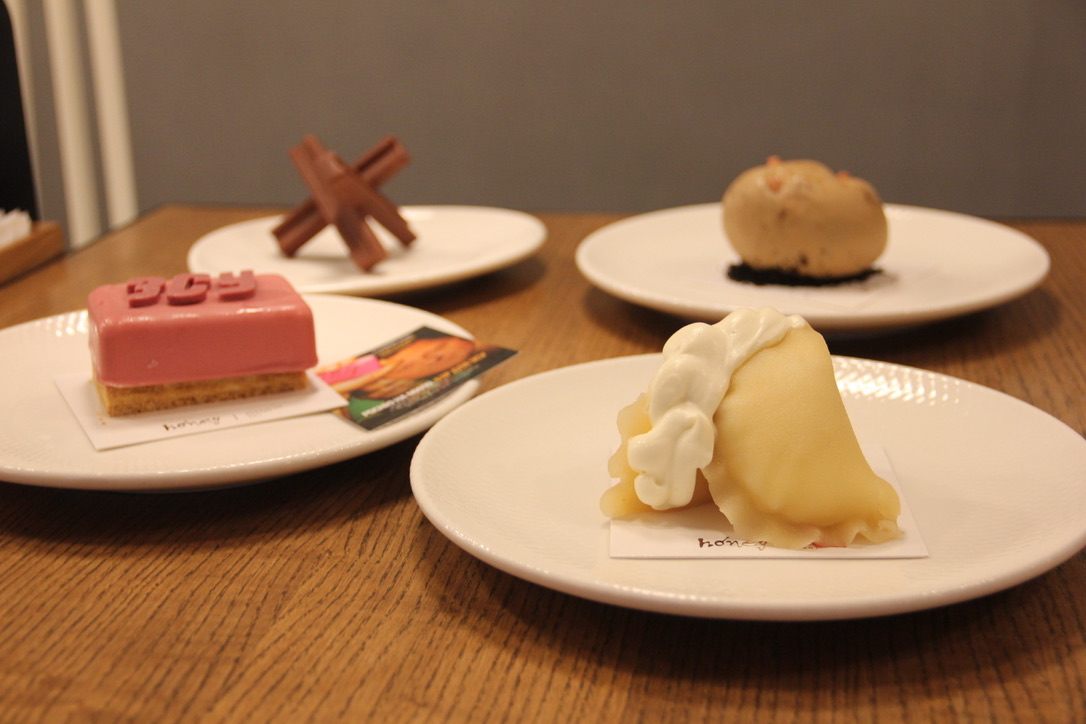


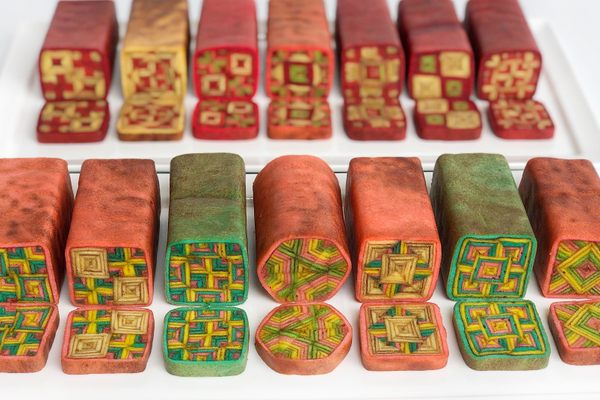












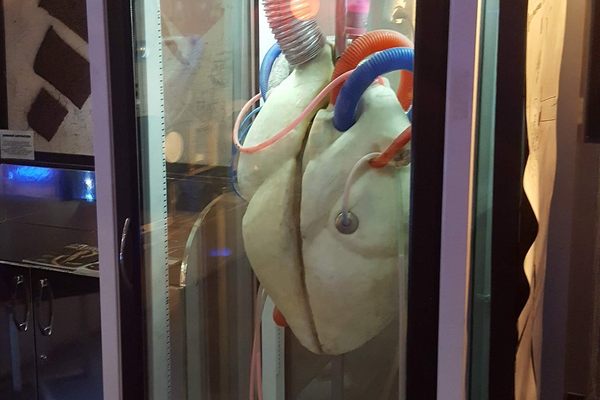

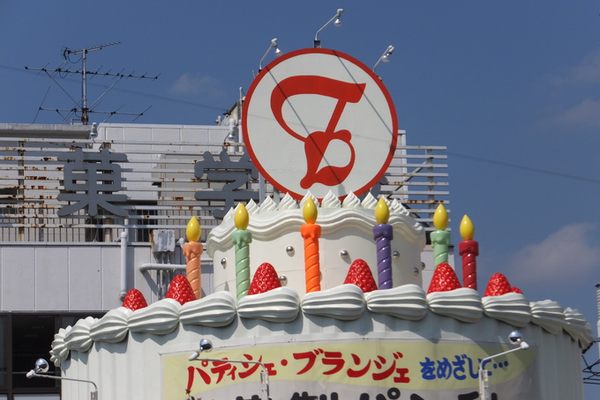




Follow us on Twitter to get the latest on the world's hidden wonders.
Like us on Facebook to get the latest on the world's hidden wonders.
Follow us on Twitter Like us on Facebook